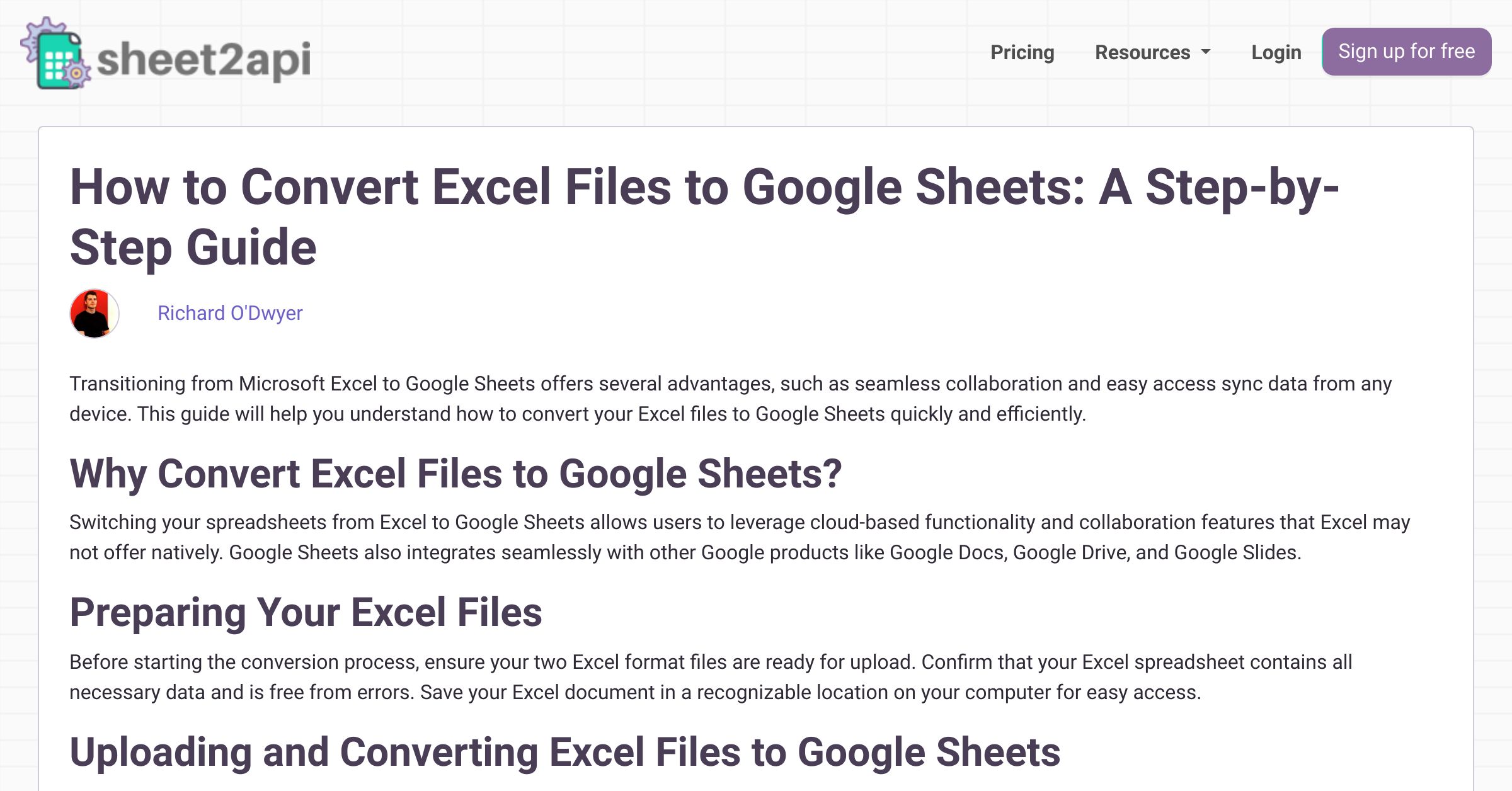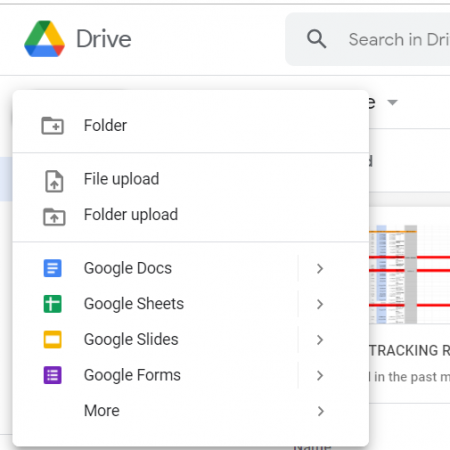5 Easy Steps to Move Excel to Google Sheets

Are you ready to leave the legacy of Microsoft Excel behind and embrace the collaborative power of Google Sheets? Transitioning from one spreadsheet platform to another might seem daunting, but it doesn't have to be. Here, we'll guide you through 5 easy steps to move your data from Excel to Google Sheets, making your transition smooth and efficient.
Step 1: Prepare Your Excel Data

Before you can transfer your Excel spreadsheets to Google Sheets, ensuring your data is optimized for the move is essential:
- Remove Unnecessary Data: Trim down any extra information or hidden rows/columns that won’t be needed in Google Sheets.
- Data Validation and Formulas: Check that your data validation rules and formulas are working correctly. Some Excel-specific functions may not have a direct counterpart in Google Sheets, so make notes of these for reference.
- File Format: While Google Sheets can open various Excel file formats, .xlsx is the preferred format for compatibility.
- Conditional Formatting: Ensure any conditional formatting rules are intact, as Google Sheets supports many, but not all, of Excel’s formatting rules.
Step 2: Import Excel into Google Sheets

Now, let’s get your Excel data into Google Sheets:
- Open Google Sheets in your web browser.
- Click on File in the top menu, then select Import.
- In the dialog box that appears:
- Choose Upload from the options on the left.
- Click Select a file from your device and browse to find your Excel file.
- Once uploaded, decide how you want the file to be imported by selecting from the options:
- Create new spreadsheet
- Insert new sheet(s)
- Replace current sheet
- Click the Import data button.
🔍 Note: If your file contains features like VBA macros or pivot tables with special features, these might not transfer perfectly. Take care to note these for manual recreation or modification.
Step 3: Recreate Unique Excel Features

After importing, you’ll need to recreate or adjust some features not natively supported by Google Sheets:
- Macros: Convert your VBA macros into Google Apps Script.
- Data Tables: Use Google Sheets’ filter views or ‘alternating colors’ to recreate table-like functionality.
- Advanced Charts: Some Excel charts might not have a direct translation. Use Google Sheets’ chart editor to recreate them.
- Special Functions: Look up Google Sheets equivalents for any Excel-specific functions or create custom functions using Google Apps Script.
Step 4: Fine-Tune Collaboration and Accessibility

Google Sheets shines in collaboration. Take these steps to leverage its features:
- Share: Click Share in the top right corner and set up sharing permissions.
- Comments: Use Google Sheets’ comment features for team communication.
- Data Protection: Protect sheets or ranges to control who can edit what.
- Access Settings: Manage access settings to ensure only authorized users can view or edit your data.
Step 5: Final Review and Optimization

Once your data has been moved, perform these final checks:
- Formulas: Verify that all formulas are working correctly, especially those using functions unique to Excel.
- Data Integrity: Scan through your data to ensure no information was lost or altered during the import process.
- Visuals: Check that charts and graphs are visually appealing and display accurately.
- Named Ranges: Confirm named ranges have been preserved or recreate them in Google Sheets.
- File Cleanup: Remove any Excel-specific leftovers like references to external files or unsupported links.
To wrap things up, moving from Excel to Google Sheets opens up a world of collaboration and cloud-based productivity. Following these 5 easy steps, you can ensure a seamless transition, making the most out of Google Sheets' unique features while preserving your data's integrity. Embrace the change, take advantage of real-time collaboration, and watch as your spreadsheets evolve into interactive, shareable tools. Remember, while some adjustments might be needed due to differences in functionality, the core of your data analysis and presentation capabilities will remain intact. The future of spreadsheets is cloud-based, and now you're ready to make the leap.
What do I do if a specific Excel function doesn’t work in Google Sheets?

+
Check Google Sheets’ help documentation or forums for equivalent functions. If none exist, consider creating a custom function using Google Apps Script.
Can I still use macros after moving to Google Sheets?

+
VBA macros won’t work, but you can use Google Apps Script to recreate automation. There’s a learning curve, but many resources are available to help you transition.
How do I ensure data privacy when sharing Google Sheets?

+
Use Google Sheets’ sharing permissions to control who can view or edit your document. You can also protect sheets or ranges to limit access to sensitive data.